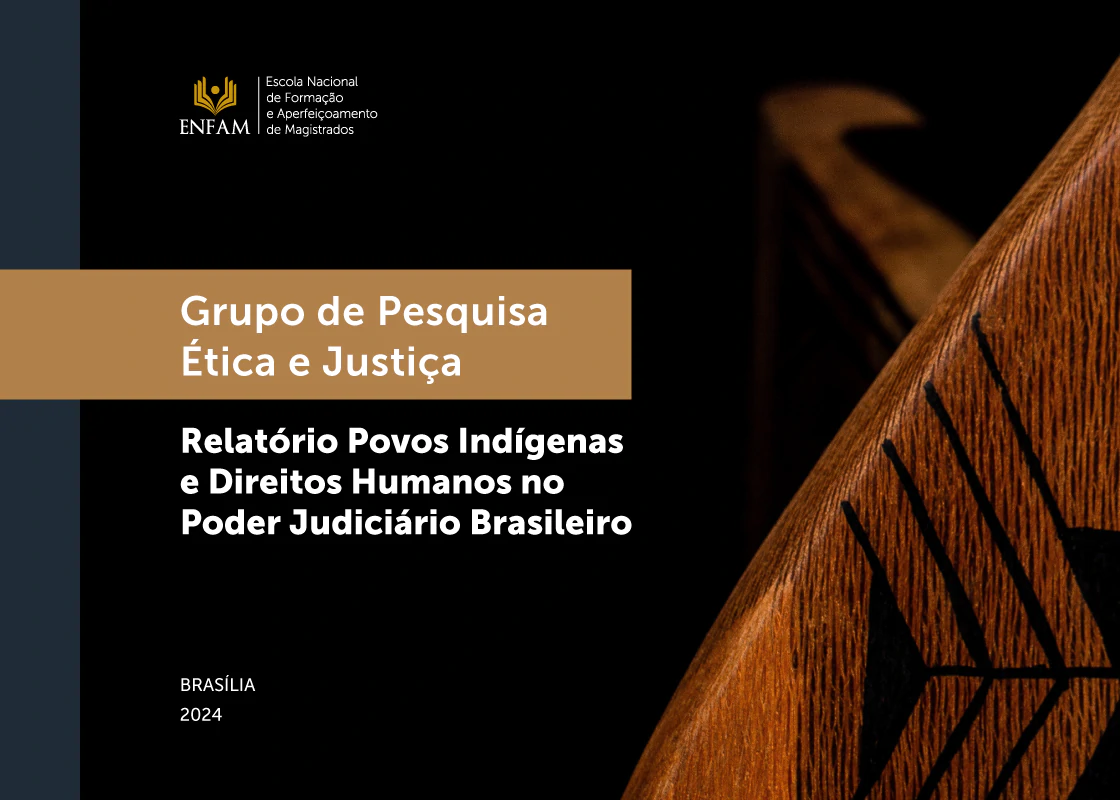
The report on Indigenous Peoples and Human Rights in the Brazilian Judiciary was published on Tuesday (22nd) on the website of the National School for the Training and Improvement of Magistrates (Enfam). The document is authored by the master's research group on Ethics and Justice (Research Group 1 - GP1/Enfam) of the School and it brings together the main elements relating to indigenous peoples in the national and Latin American context, mapping the norms and cases judged in Brazil and at the Inter-American Court of Human Rights.
The publication presents an overview of the current situation of indigenous peoples, especially in Brazil, indicating the main treaties, conventions, recommendations and international condemnations that deal with the subject. It also describes the constitutional treatment of the issue in Brazil, as well as other national legislation, including within the Judiciary.
The document was coordinated by André Bezerra, a law Judge at the Court of Justice of the State of São Paulo (TJSP), Melyna Machado, a law Judge at the Court of Justice of the State of Mato Grosso do Sul (TJMS), and Míriam Zampier, a law Judge at the Court of Justice of the State of Pará (TJPA).
André Bezerra pointed out that there is a difficulty in understanding the rights of indigenous peoples for a number of reasons, starting with the difficulty of understanding their diverse forms of existence, the lack of transmission of this knowledge from law schools and the spatial nature of legislation. “The research group is dedicated to study access to justice for historically vulnerable populations, such as indigenous peoples, who have these difficulties in relation to their rights,” he said.
Melyna Machado pointed out that the report aims to tackle the complexity involved in guaranteeing access to justice under conditions of equality and non-discrimination. “The document is intended to help legal practitioners in their practical work through the mapping carried out, which, although exploratory, already demonstrates the importance of qualified action guided by the cultural relevance of the measures adopted and greater approximation with concepts unknown to the Law, but of great importance for the cultural adequacy of the services provided,” she noted.
Míriam Zampier commented that the relevance of the document is also to ensure that the Law can be a space of respect and recognition. “By spreading the foundations for critical knowledge of the rights of indigenous people and peoples, the report ultimately aims to ensure that the Judiciary is attentive to the demands presented to it by society, especially with regard to historically invisible social segments,” she concluded.
Click here and check out the full report.




